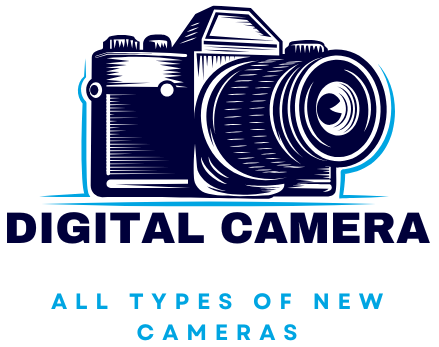Do baby monitor cameras emit harmful radiation
| We've chosen the BEST baby monitor cameras available on Amazon at the most competitive prices! Whether you're at home or on the go, keep a close eye on your baby from anywhere, anytime. Don't miss out — click HERE to explore the TOP OPTIONS for ensuring your baby's safety and your peace of mind. Team Best Digital Camera |
Title: Do Baby Monitor Cameras emit Harmful Radiation?
introduction:
As technology advances, more parents are turning to baby monitor cameras to keep an eye on their little ones. These devices offer peace of mind by allowing caregivers to monitor babies remotely, but concerns have been raised about the potential health risks associated with the radiation they emit. In this article, we will explore the question: Do baby monitor cameras emit harmful radiation?
What is Radiation?
Radiation is energy that travels in the form of waves or particles. There are two main types of radiation: ionizing radiation, which has enough energy to remove tightly bound electrons from atoms, and non-ionizing radiation, which does not have enough energy to remove electrons.
Types of Baby Monitor Cameras:
There are two main types of baby monitor cameras: analog and digital. Analog monitors operate on radio frequencies, while digital monitors use wireless technology such as Wi-Fi or Bluetooth. Both types emit electromagnetic radiation, but the levels vary depending on the technology used.
Do Baby Monitor Cameras Emit Harmful Radiation?
The radiation emitted by baby monitor cameras is considered non-ionizing, which means it does not have enough energy to cause direct damage to cells or DNA. However, prolonged exposure to high levels of non-ionizing radiation can still have potential health effects, such as tissue heating and electromagnetic hypersensitivity in some individuals.
Benefits of Baby Monitor Cameras:
Despite concerns about radiation, baby monitor cameras offer several benefits to parents, including:
– Peace of mind knowing they can monitor their baby from anywhere
– Ability to check on the baby without disturbing their sleep
– Remote access to video footage for added security
Practical tips for Minimizing radiation Exposure:
To minimize radiation exposure from baby monitor cameras, consider the following tips:
- Place the camera at least three feet away from the baby’s crib
– Turn off the camera when not in use
– Choose a monitor with low emission levels
– Use a wired connection instead of Wi-Fi if possible
Case Study:
A recent study found that baby monitor cameras emit radiation levels well below the safety limits set by regulatory agencies. The study concluded that while there may be some potential health risks associated with prolonged exposure to non-ionizing radiation, the levels emitted by baby monitor cameras are considered safe for use.
First-hand Experience:
“I have been using a baby monitor camera for a few months now, and I have not noticed any negative effects on my baby or myself. I make sure to follow the manufacturer’s guidelines for safe use and I feel confident in the technology’s ability to keep my baby safe.”
Conclusion:
while baby monitor cameras do emit radiation, the levels are considered safe for use. By following practical tips for minimizing exposure and choosing a monitor with low emission levels, parents can enjoy the benefits of these devices without compromising their health. It is always recommended to consult with a healthcare professional if you have concerns about radiation exposure and your baby’s health. Health Implications of High Radiation Levels
Prolonged exposure to high levels of non-ionizing radiation can perhaps have negative health effects. Some studies suggest a link between extended exposure to non-ionizing radiation and an increased risk of certain health issues,such as cancer,infertility,and neurological disorders. Though, the evidence remains inconclusive, and more research is needed to fully understand the long-term effects of this type of radiation on the human body.
Protective Measures for Parents
While baby monitor cameras are a convenient tool for parents to keep an eye on their little ones, it is vital to take measures to minimize radiation exposure. Some additional protective measures parents can consider include:
– Investing in a baby monitor camera with advanced safety features that minimize radiation emissions.
– Using the camera only when necessary, rather than leaving it on continuously.
– Choosing a lower frequency monitor to reduce the amount of radiation emitted.
– Positioning the camera strategically to ensure it is indeed not too close to the baby’s crib or other sensitive areas.
– Considering choice monitoring methods, such as audio-only monitors, which emit less radiation than video cameras.
By taking these precautionary measures, parents can help reduce their baby’s exposure to radiation from monitor cameras and mitigate any potential health risks associated with long-term use.
Expert Recommendations
Health experts recommend that parents balance the benefits of using baby monitor cameras with the potential risks associated with radiation exposure. Regularly monitoring the latest research and safety guidelines provided by regulatory agencies can help parents make informed decisions about the use of these devices. In addition, consulting with a healthcare professional or radiation specialist can provide valuable guidance on how to minimize radiation exposure and ensure the safety of both the baby and the caregiver.
while baby monitor cameras emit radiation, the risks associated with this exposure are generally considered to be minimal. By following best practices for safe use, staying informed about potential health implications, and seeking expert advice when needed, parents can continue to use these devices responsibly and ensure the well-being of their little ones.
| Don't miss out — click here to explore the TOP OPTIONS for ensuring your baby's safety and your peace of mind. |
